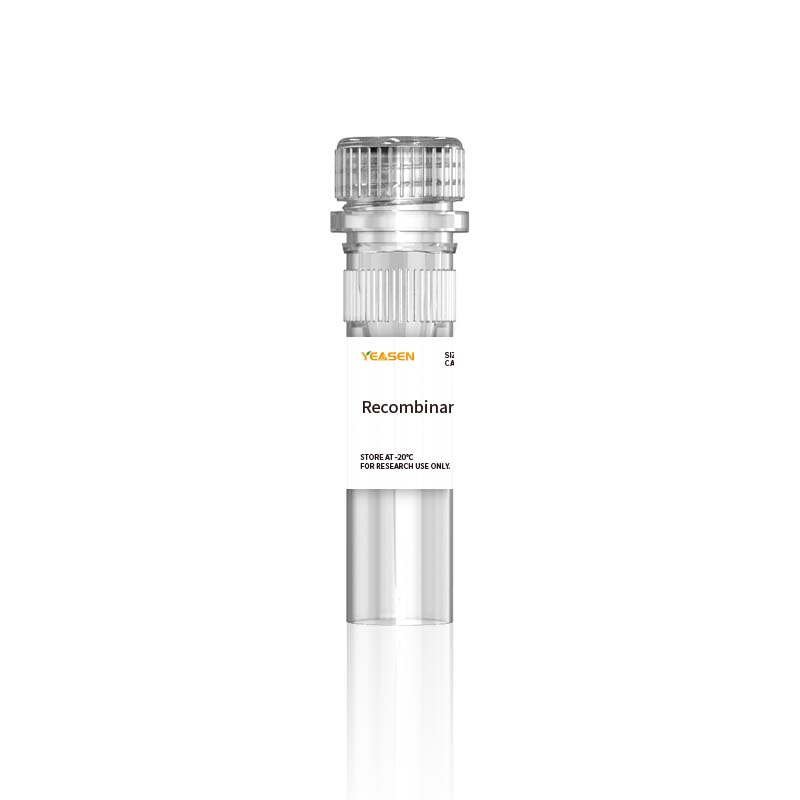Description
Carcinoembryonic antigen-related cell adhesion molecule 8 (CEACAM-8), also known as CGM6 and CD66b, is an approximately 95 kDa member of the human carcinoembryonic antigen (CEA) family that plays a role in cell adhesion, cell migration and pathogen binding. CEACAM-8 is anchored to cells by a glycophosphatidylinositol (GPI) motif and is expressed exclusively on granulocytes. Human CEACAM-8 is composed of a 34 amino acid (aa) signal peptide, a 29 aa propeptide segment which is removed in the mature form, and a 286 aa CEACAM-8 region containing one V-type and two C2-type Ig-like domains. A homologue for CEACAM-8 has not been identified in the mice or rats. Activation enhances surface expression of CEACAM-8 and is an activation marker in human neutrophils and eosinophils. Engagement of CEACAM-8 by mAb or galectin-3 activated a Src family kinase (lyn), and induced cellular adhesion, superoxide production, and degranulation of eosinophils. CEACAM-8 can form both homotypic, and heterotypic bonds with CEACAM-6 through interaction of the V-type Ig-like domains. Cross-linking of neutrophil CEACAM-8 augments cytokine secretion and beta2 integrin-mediated adhesion.
Specifications
|
Synonyms |
CD66b; CEACAM8; CGM6; CD67; NCA-95 |
|
Uniprot No. |
P31997.2 |
|
Source |
Recombinant Human CEACAM-8/CD66b Protein is expressed from HEK293 Cells with His tag at the C-terminal. It contains Gln35-Ser319. |
|
Molecular Weight |
Approximately 32.5 kDa. Due to glycosylation, the protein migrates to 60-70 kDa based on Tris-Bis PAGE result. |
|
外观 |
Sterile Filtered White lyophilized (freeze-dried) powder. |
|
Purity |
> 95% as determined by SDS-PAGE and HPLC. |
|
Activity |
SPR Data:Human CEACAM-8, His Tag immobilized on CM5 Chip can bind Human CEACAM-6, His Tag with an affinity constant of 4.59 μM as determined in SPR assay (Biacore T200). |
|
Endotoxin |
< 1.0 EU per 1μg of the protein by the LAL method. |
|
Formulation |
Lyophilized from 0.22μm filtered solution in PBS (pH 7.4). Normally 5% trehalose is added as protectant before lyophilization. |
|
Reconstitution |
Centrifuge tubes before opening. Reconstituting to a concentration more than 100 μg/mL is recommended (usually we use 1 mg/mL solution for lyophilization). Dissolve the lyophilized protein in distilled water. |
Storage
The product should be stored at -20~-80℃ for 1 year from date of receipt.
2-7 days, 2 ~8 °C under sterile conditions after reconstitution.
3-6 months, -20~-80℃ under sterile conditions after reconstitution.
Recommend to aliquot the protein into smaller quantities when first used and avoid repeated freeze-thaw cycles.
Note
1.Avoid repeated freezing and thawing.
2.Please operate with lab coats and disposable gloves, for your safety.
3.This product is for research use only.
Product Data


Payment & Security
Your payment information is processed securely. We do not store credit card details nor have access to your credit card information.
Inquiry
You may also like
FAQ
The product is for research purposes only and is not intended for therapeutic or diagnostic use in humans or animals. Products and content are protected by patents, trademarks, and copyrights owned by Yeasen Biotechnology. Trademark symbols indicate the country of origin, not necessarily registration in all regions.
Certain applications may require additional third-party intellectual property rights.
Yeasen is dedicated to ethical science, believing our research should address critical questions while ensuring safety and ethical standards.

